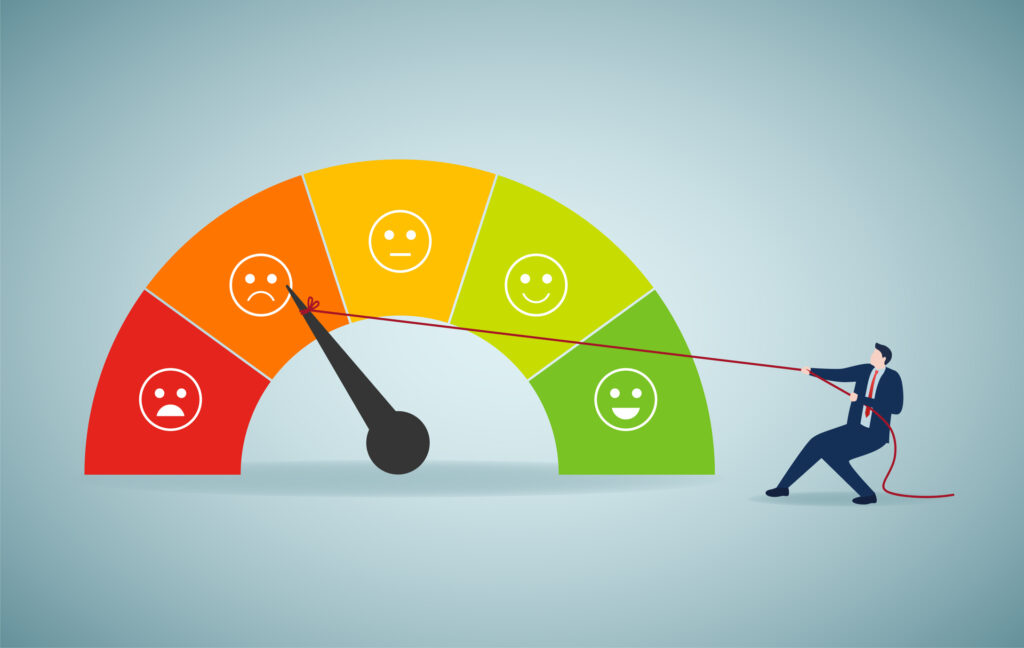
The experience of dealing with credit card debt can be incredibly overwhelming, with challenges often involved. However, for individuals considering Chapter 7 bankruptcy may provide a solution to address these difficulties. Let’s explore how Chapter 7 bankruptcy can effectively tackle the three pain points associated with struggling with credit card debt;
High-Interest Rates and Increasing Balances
Chapter 7 bankruptcy offers relief from the burden of interest rates and mounting balances. In some cases, this type of bankruptcy results in the discharge of debts, such as credit card debt. When these debts are discharged, the debtor is no longer legally obligated to repay them, effectively ending compounding interest and preventing balances from growing.
For instance, let’s consider Sarah—an accomplished graphic designer, who found herself submerged in $30,000 of credit card debt due to expenses and exorbitant interest rates. After seeking guidance from a bankruptcy attorney, she filed for Chapter 7 bankruptcy. This process led to the discharge of her credit card debts instantly, halting any accumulation of interest and allowing her to embark on a financial journey.
Elimination of Debts Through Discharge
Through Chapter 7 bankruptcy, one can achieve liberation from debts using discharge—especially when it comes to credit card debt. Once discharged through this method, the debtor has no obligation to repay those debts.
A New Beginning in Terms of Finances
By eradicating credit card debt through Chapter 7 bankruptcy proceedings, individuals are allowed to restart financially.
This can end the never-ending cycle of accumulating debt giving individuals a chance to start fresh with their finances. It’s worth noting that Chapter 7 bankruptcy is not available for everyone and it should be considered only after exploring options for relieving debt.
For instance, let’s consider John, a business owner who faced credit card debt while trying to keep his business afloat during an economic downturn. After his business closed down, he found himself burdened with $50,000 in debt. John decided to file for Chapter 7 bankruptcy, which resulted in the discharge of his credit card debts. This allowed him to rebuild his life without the weight of obligations.
Financial Stress and Its Impact on Quality of Life
One benefit of discharging credit card debt through Chapter 7 bankruptcy is the reduction in financial stress. By eliminating these debts, individuals can experience a sense of relief and reduced anxiety levels. This improvement in well-being directly contributes to enhancing their quality of life.
Consider Emily as an example; she is a mother raising two children. She constantly felt overwhelmed by her $20,000 credit card debt alongside managing household expenses. However, after filing for Chapter 7 bankruptcy and having her credit card debts discharged, Emily experienced a decrease in stress levels. This newfound relief allowed her to shift her focus toward her family and less on burdens.
The positive impact on family life resulting from relieving credit card debt can be significant. It can lead to improved relationships, and the ability to focus on personal goals and activities without the constant worry of overwhelming financial obligations.
For instance, consider the story of Mark and Linda, a couple burdened by mounting credit card debts. These debts often caused arguments about finances, putting strain on their marriage. However, after they filed for Chapter 7 bankruptcy and had their debts discharged, they experienced reduced pressure. This improvement allowed them to strengthen their relationship and make plans for the future without the weight of debt.
Credit Score Damage and Limited Financial Opportunities
On the other hand, filing for Chapter 7 bankruptcy has some drawbacks on credit scores. Initially, it may negatively impact an individual’s credit score. However, it’s important to note that many individuals struggling with levels of credit card debt might already have compromised credit scores.
Nevertheless, bankruptcy can provide a pathway toward rebuilding one’s credit score. After discharging debts through bankruptcy, individuals can rebuild their credit by adopting habits such as making timely payments on remaining debts and carefully managing new lines of credit.
To illustrate this point further, let’s consider Alex—a college graduate who was burdened with $15,000 in credit card debt. Unfortunately for Alex, his low credit score was already a result of missed payments before considering bankruptcy.
After Alex filed for Chapter 7 bankruptcy, his credit score initially dropped. However, he rebuilt his credit by obtaining a secured credit card, consistently making on-time payments, and keeping his balances low. Over time, his credit score gradually improved as a reflection of his discipline.
Unlocking Opportunities for Future Financial Stability
While bankruptcy may temporarily restrict access to credit cards, it also lays the foundation for future financial stability. By eliminating debt through bankruptcy proceedings, individuals can gradually regain access to products and opportunities with more favorable terms than they would have received while burdened by excessive debt.
For instance, let’s consider the case of Rita. Before filing for Chapter 7 bankruptcy, she had accumulated $40,000 in credit card debt, which limited her options in terms of accessing products. However, after embracing habits and utilizing secured credit cards with small installment loans, she rebuilt her credit. Within a year, she became eligible for an auto loan with conditions—a significant milestone on a path toward achieving financial stability.
Filing for Chapter 7 bankruptcy is a decision that should be evaluated carefully. It offers a resolution to eliminate credit card debt and provides relief from high-interest rates and the perpetual cycle of debt-induced stress.
However, it is crucial to consider both the short-term and long-term effects on your well-being. Seeking advice from a bankruptcy lawyer or a financial consultant can offer perspectives and recommendations regarding whether this course of action aligns with your circumstances.


Get a Free Bankruptcy Case Evaluation